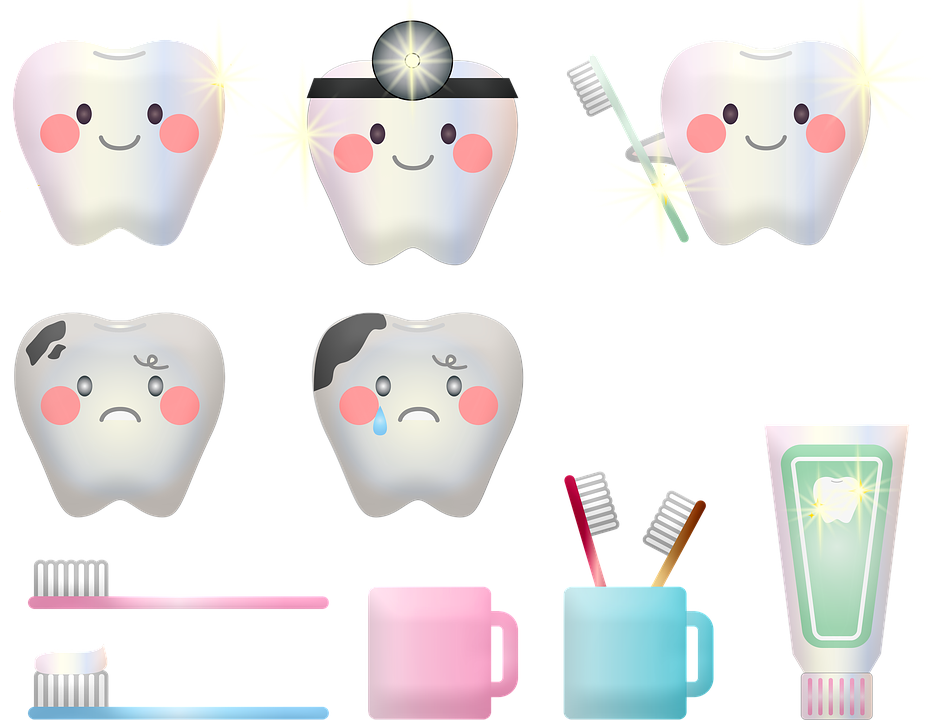Many parents struggle to determine just how much dental attention they should accord their children. While most understand the need for cavity prevention, they aren’t always sure how to go about it. Baby teeth usually show up as early as 3 months for some babies while on average 6 to 12 months for most, and if there’s a lack of proper dental hygiene, tooth decay may start as soon as the first tooth pops up. This period can usually be stressful for both the babies and their parents, more so first-time parents, as the babies go through constant screaming and reluctance to feed. A physician could guide the steps to alleviate the discomfort from teething at this stage and deal with persistent problems.
From an average age of around 6 years, baby teeth start to fall out, and permanent teeth start setting up over 7 years. It is very crucial to ensure the child’s teeth grow properly at this stage as this is the framework for adult teeth. Regular dentists checkup is critical during this stage. Since children love sugary foods and drinks, some may develop much more deep-seated dental problems requiring the expertise of a Cutting Edge Periodontist. Parents need to be very involved in the management of their children’s oral hygiene, and there are many subtle ways to achieve that without necessarily being overbearing. Developing and adhering to a routine is key to achieving this, from diet to oral hygiene.
Let’s go through some of the most common pitfalls every parent or guardian should avoid if they see through their children experience the best oral and overall health!
1. Not Practicing Daily Oral Hygiene
Did you know that children and teens learn the most from observing and mimicking how the people closest to them do things? They are curious by nature, and seeking clarification through questions is one of their inclinations. The best way to introduce them to a culture of daily brushing and flossing of teeth is to do those things yourself as they watch! Never yell or admonish them when they don’t, a high chance they don’t see you do it regularly too.
This should be started as soon as the first teeth are visible to ward off any minimal chance of bacterial growth. As they come of age, teach them how to do it themselves, but not vigorously. Your teeth and gums should always be healthy to avoid transferring bacteria to them through saliva or sharing utensils.
2. Putting Them to Bed With a Bottle
Most parents lull their babies to sleep by giving them the baby bottle filled with drinks like juices and formula, which can create good breeding conditions for bacteria in the mouth. The bottle can be a good way of calming babies, especially those who cry a lot but can pose oral health dangers to your child. If you can’t avoid giving them a sleeping bottle, ensure it’s got no sugary drinks. It’s advisable to eliminate the bottle and teach your child to drink from a regular cup by 15 months. Less liquid collects around the teeth when using a cup.
3. Not Taking Them for Regular Dental Check-Ups
Regular dental check-ups don’t only apply to adults but also to children. It’s recommended for a parent to take their child to the dentist as early as one year of age and regular check-ups afterward. This will ensure any early potential problems with tooth decay or others like bite anomalies are diagnosed early and corrected before they advance further. Doing this will also help the child note the importance and develop a culture of routine dental check-ups through to adulthood. Early visits to the dentist also play a huge role in ensuring a child doesn’t develop dental anxiety as they are exposed to dental procedures from an early age.
4. Not Limiting Drinks And Food With Added Sugars
The type of diet your child indulges is not only instrumental in their overall development and health but also their oral hygiene and wellness. Processed food with lots of sugars, drinks, and products with added sugars are the most detrimental to your child’s oral health. Sugary remains within the oral cavity are the lead cause for the development of plague, which ultimately leads to tooth decay and other oral health concerns. Teach your children other healthy food alternatives like fruits and vegetables to replace sugary snacks.
To help prevent cavities, children and teenagers are advised to schedule a visit to the dentist every six months.

